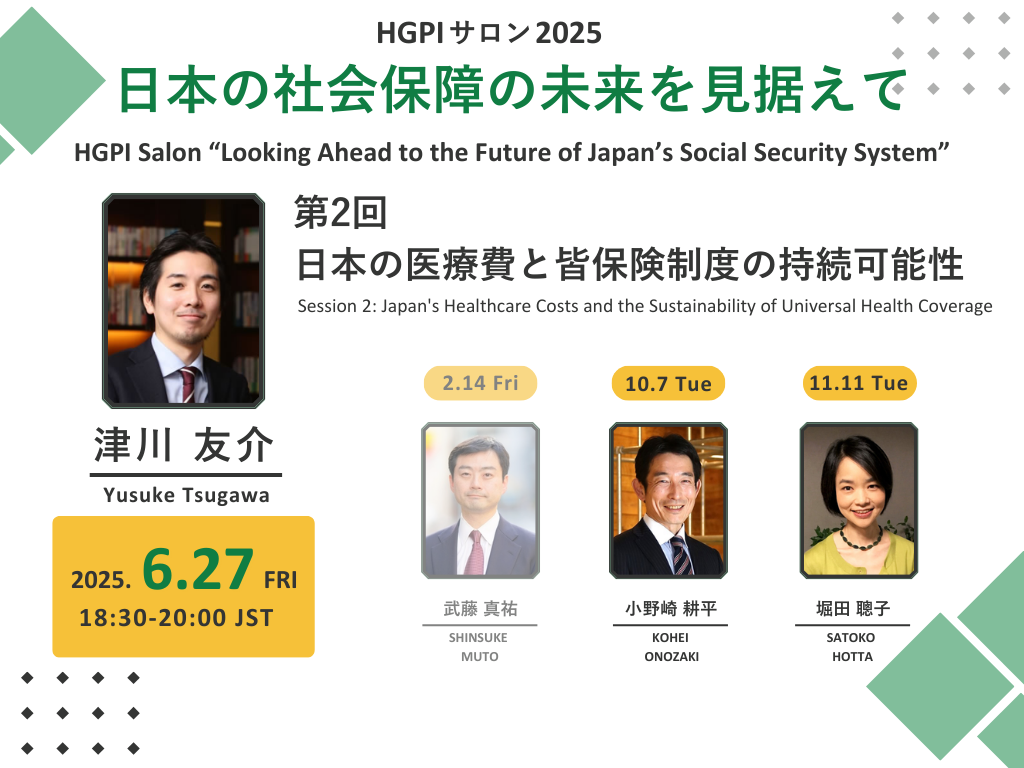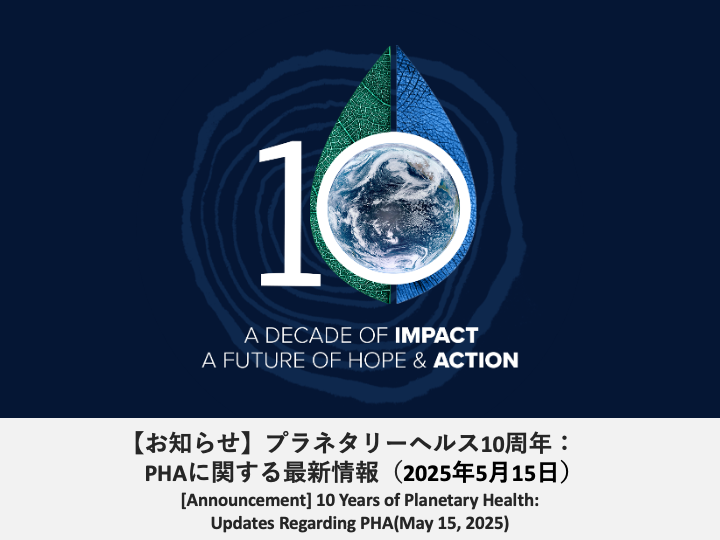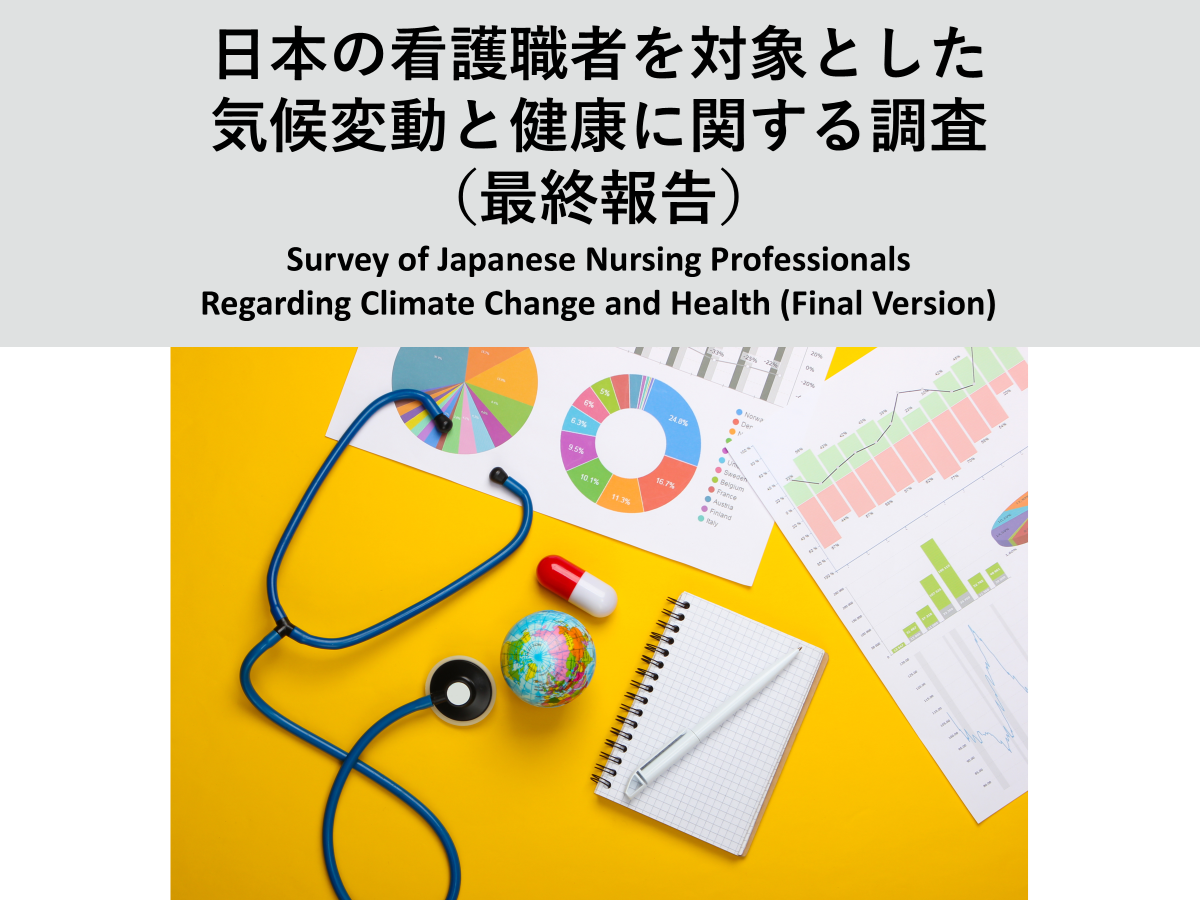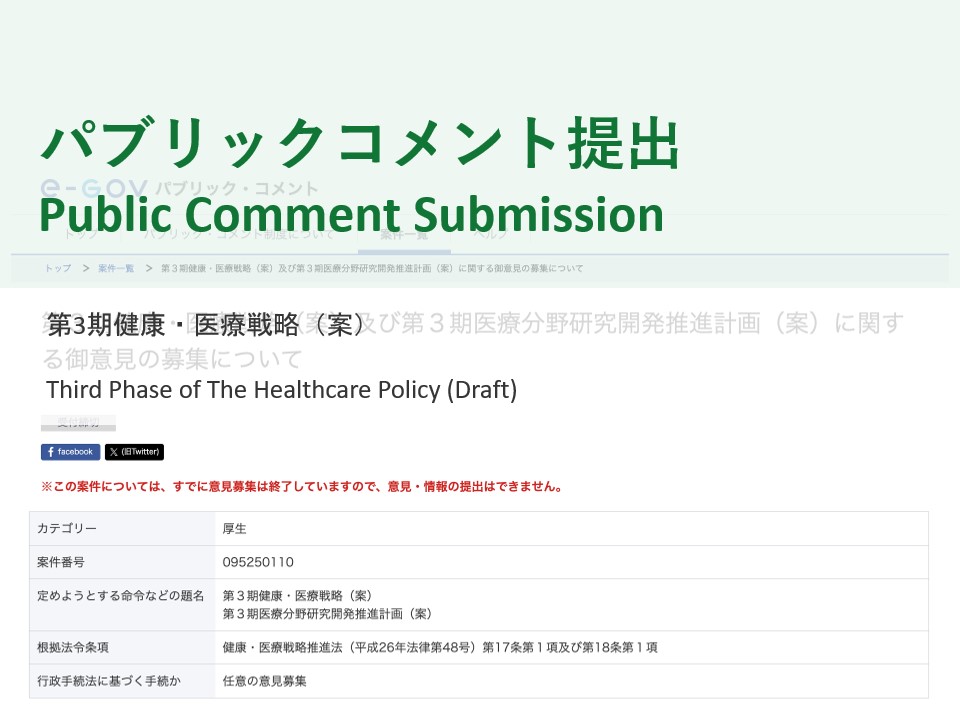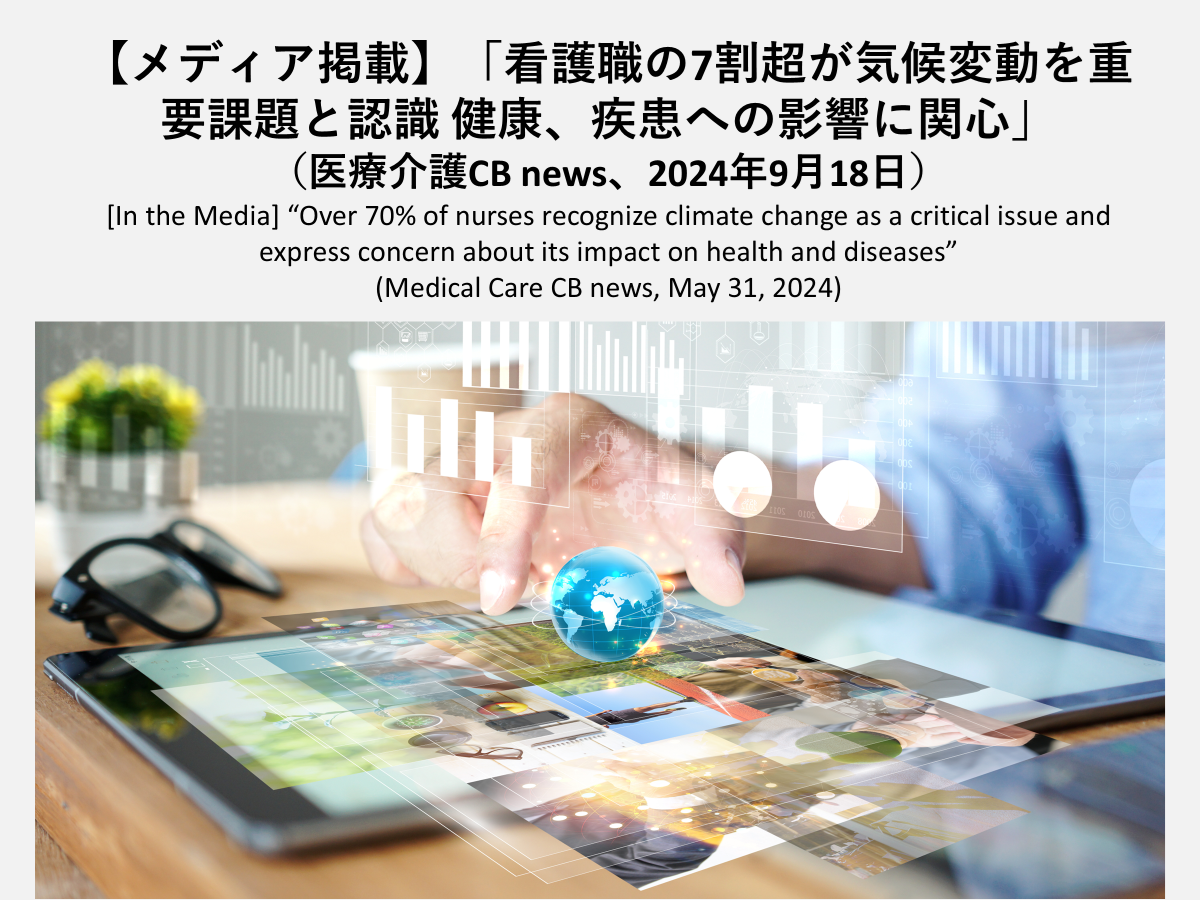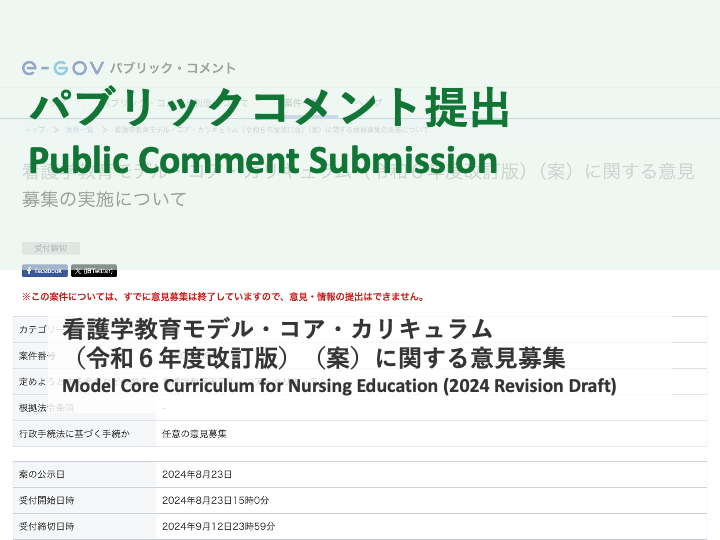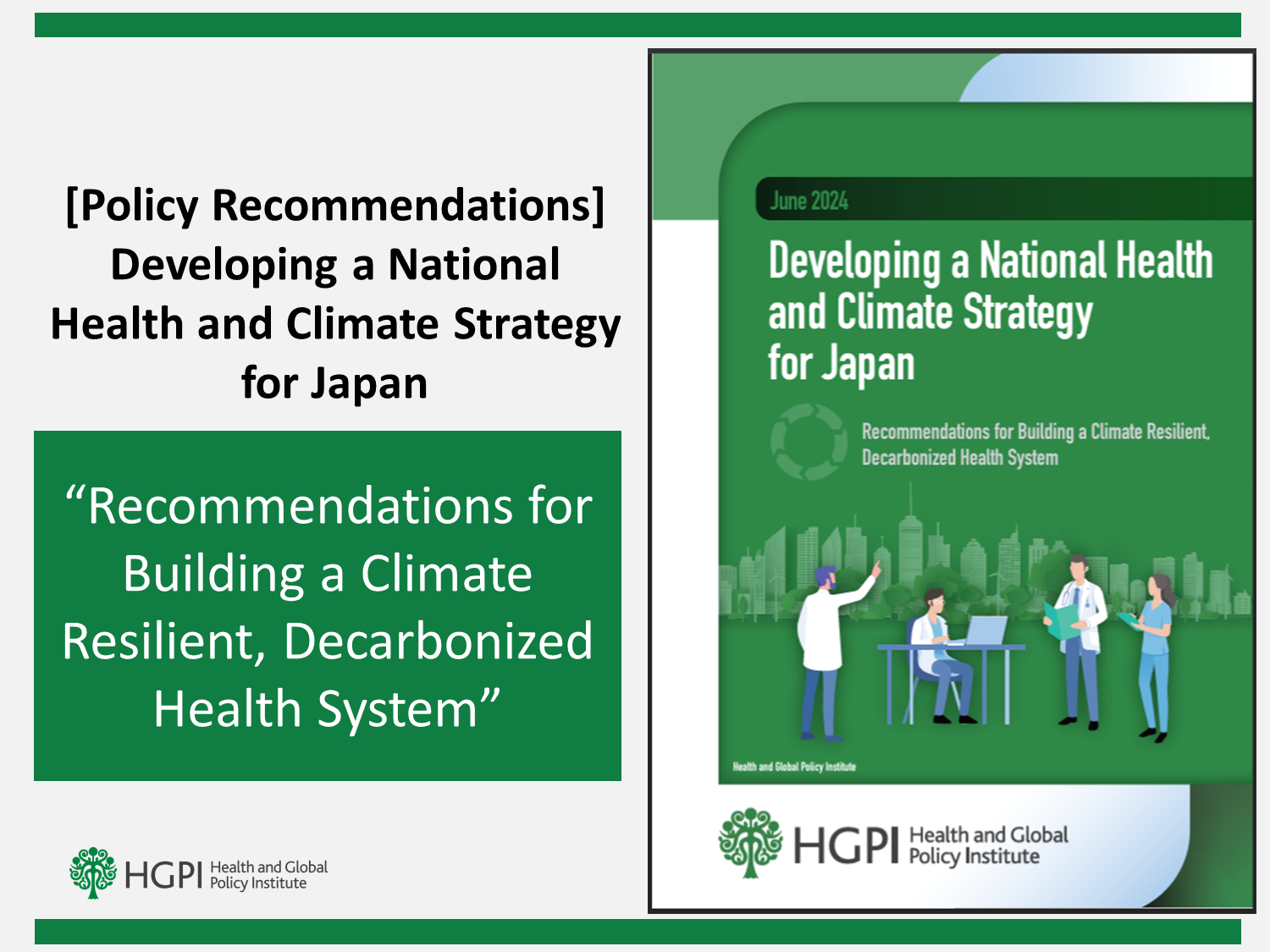[HGPI Policy Column] (No.59) — From the Planetary Health Project “Part 13: Nursing for the Future of Human and Planetary Health: Integrating Planetary Health Perspectives into Education and Practice”
date : 5/30/2025
![[HGPI Policy Column] (No.59) — From the Planetary Health Project “Part 13: Nursing for the Future of Human and Planetary Health: Integrating Planetary Health Perspectives into Education and Practice”](https://hgpi.org/en/wp-content/uploads/sites/2/column-59-top.png)
<POINTS>
- The increasing frequency of climate change, environmental degradation, infectious diseases, and disasters is placing mounting pressure on health systems, requiring nurses to adopt a broader perspective that includes Planetary Health
- The Planetary Health perspective has been formally incorporated into Japan’s Model Core Curriculum for Nursing Education, to be implemented starting in academic year 2026
- Integrating environmental and health perspectives represents a critical opportunity—not only for undergraduate nursing education but also for enhancing community-based care and supporting lifelong learning and continuous professional development for active nursing professionals in the era of climate change
As climate change and environmental degradation increasingly impact health systems worldwide, nursing professionals are expected to play a key role in building sustainable and resilient communities. In Japan, the inclusion of the Planetary Health perspective in the revised Model Core Curriculum for Nursing Education represents a significant step toward preparing nurses to meet global health challenges. This column outlines the background of this development, HGPI’s policy recommendations, and the future outlook for integrating environmental considerations into nursing education and lifelong learning.
Japanese society is currently undergoing significant changes in its healthcare delivery system due to declining birthrates and a rapidly aging population. These shifts are compounded by the emergence and re-emergence of infectious diseases and the increasing frequency and severity of natural disasters. Furthermore, climate change is exerting a profound impact on health, with the World Health Organization (WHO) warning that existing threats to global health and well-being are intensifying.
Among these challenges, the health risks associated with extreme heat have become particularly acute. In Japan, there has been a sharp rise in heat-related illnesses, especially among older adults. To address these developments, there is an urgent need to foster nursing professionals who possess the competencies to identify emerging challenges, think critically, communicate globally, and generate new values and visions to actively contribute to social improvement.
In response to these societal shifts, the Ministry of Education, Culture, Sports, Science and Technology (MEXT) initiated a revision of the Model Core Curriculum for Nursing Education in July 2023. The new curriculum is scheduled to take effect beginning with the 2026 academic year.
This revision marks a shift from content-based education—which emphasizes the learning process and time spent—to a competency-based approach. The new framework structures the knowledge, skills, attitudes, and values students are expected to acquire into four progressive levels, placing greater emphasis on clearly defined outcomes.
What Is Planetary Health?
For the first time, the concept of “Planetary Health” has been incorporated into the Model Core Curriculum for Nursing Education. Planetary Health is both an interdisciplinary academic field and a social movement rooted in the understanding that human health is deeply connected to the health of Earth’s natural systems.
Climate change and environmental degradation are not just ecological issues—they contribute to a wide range of health problems, including increased cases of heatstroke, the spread of infectious diseases, food insecurity, and mental stress. It is essential to recognize that a crisis for the planet is a crisis for human health.
Nurses play a critical role not only in delivering care to individual patients but also in promoting the health of families and entire communities. For future nurses, it is essential to adopt a perspective that links the health issues faced by individuals with broader environmental changes. Nursing practice must incorporate sustainability to protect the health of both individuals and communities.
HGPI’s Proposal: Integrating and Reorganizing Existing Educational Content
Based on the results of a 2024 survey on climate change and health conducted among nursing professionals in Japan , Health and Global Policy Institute (HGPI) submitted recommendations for the current revision of the Model Core Curriculum for Nursing Education.
Rather than introducing entirely new sections on Planetary Health, HGPI emphasized modifying the language and perspectives of existing curriculum components to embed long-term environmental and health considerations. Many elements of Planetary Health are already reflected in nursing education. Simply reorganizing these components can help students gain a deeper understanding of the concept without overhauling the curriculum.
The revised curriculum strengthens the focus on understanding the connections between healthcare, social environments, and health. A new learning objective (SO-01-02-03) explicitly states that students should understand “the interrelationship between the global environment, the social environment, and human health—in other words, Planetary Health.”
While the 2019 revision of the Medical Education Model Core Curriculum added a section on “Climate Change and Healthcare” (ME-5-16, later updated to SO-04-03 in 2022), this is the first time that Planetary Health has been explicitly incorporated into a national curriculum for nursing education.
In addition, the revised curriculum now includes references to environmental legislation, such as the Act on Promotion of Global Warming Countermeasures. As nurses assume more diverse roles in society, understanding legal and institutional frameworks related to the environment has become increasingly important.
Expanding Competencies for Planetary Health Practice
The Planetary Health perspective nurtures core nursing values that recognize the inseparability of human and planetary health. It also equips nurses with specialized knowledge on the health impacts of environmental change and practical skills for delivering environmentally conscious care and responding to health issues rooted in ecological disruption.
Integrating the Planetary Health perspective into existing areas of nursing education—such as infection prevention, environmental management, disaster response, community health support, health education, and improvements in living conditions—will enable students to better understand the connection between environmental and human health. This is expected to strengthen their capacity to deliver comprehensive nursing care in an evolving society.
It is also essential that nursing students consistently consider environmental determinants of health as they acquire the foundational knowledge and clinical reasoning skills necessary for symptom-based nursing, basic nursing techniques, physical examinations, and clinical judgment.
Looking Ahead: Advancing Nursing Practice Through Planetary Health
The inclusion of Planetary Health in the Model Core Curriculum for Nursing Education is a significant development. It reflects a commitment to training nurses who are capable of meeting shifting societal needs and addressing health challenges on a global scale.
Moving forward, it will be important to monitor how this perspective is implemented in educational settings and translated into effective, practice-oriented training for nursing students.
Future Challenges and Opportunities
While the explicit inclusion of the Planetary Health perspective represents significant progress, challenges remain in ensuring its effective implementation in educational settings. Nursing schools must take steps to support faculty development, update teaching materials, and adapt course structures to reflect this new perspective.
In medical education, efforts are already underway to develop online learning resources through collaboration among university faculty, led by the Japan Society for Medical Education . Similar cross-sector collaboration is expected to support the integration of Planetary Health into nursing education.
The International Council of Nurses (ICN) has also emphasized the importance of this issue, stating in 2018 that nurses should lead efforts to adapt to and mitigate climate change while building resilient health systems. This statement was reaffirmed and updated in 2024 to coincide with the Health Day at COP29, reflecting the growing urgency of the matter.
A 2024 survey conducted by HGPI targeting active nursing professionals found that approximately 72% consider climate change to be a critical issue for the nursing profession, and 80% believe it is necessary to study the relationship between climate change and health. These findings highlight the growing awareness of this issue across clinical settings.
However, only around 10% of respondents reported having had actual opportunities to study the topic. This underscores the need to establish lifelong learning systems to provide continuous education on climate and health for nursing professionals.
Currently, the Ministry of Health, Labour and Welfare is conducting a “Study Group on the Future of Public Health Nursing Toward 2040.” In parallel, the Collaborative Council for Promoting Home-Visit Nursing—comprising the Japanese Nursing Association, the Japan Visiting Nursing Foundation, and the National Association for Visiting Nurse Service—is discussing the formulation of a “Vision for Home-Visit Nursing in 2040.”
It is hoped that the Planetary Health perspective will be reflected in these efforts to shape in-service education and long-term professional development. Doing so would create new opportunities for nurses and public health nurses who are already active in the field to receive training and put this perspective into practice.
As the global impact of climate change continues to grow, the role of nurses on the frontlines is becoming increasingly vital. Both in Japan and around the world, there is an urgent need to develop nursing professionals who can contribute to both adaptation and mitigation efforts.
References
- Ministry of Education, Culture, Sports, Science and Technology (MEXT). Model Core Curriculum for Nursing Education (Revised in 2024). https://www.mext.go.jp/a_menu/koutou/iryou/mext_00021.html (Accessed: May 20, 2025)
- Ministry of Education, Culture, Sports, Science and Technology (MEXT). Model Core Curriculum for Medical Education (Revised in 2022). https://www.mext.go.jp/a_menu/koutou/iryou/mext_00005.html (Accessed: May 20, 2025)
- Health and Global Policy Institute (HGPI). Survey on Climate Change and Health among Nursing Professionals in Japan (Final Report). https://hgpi.org/en/research/ph-20241114.html (Accessed: May 20, 2025)
- Health and Global Policy Institute (HGPI). Survey on Climate Change and Health among Nursing Professionals in Japan (Preliminary Report, September 11, 2024). https://hgpi.org/en/research/ph-20240911.html (Accessed: May 20, 2025)
- Health and Global Policy Institute (HGPI). Public Comments on the “Model Core Curriculum for Nursing Education (Draft, Revised in 2024)” (September 11, 2024). https://hgpi.org/en/research/ph-20240911-a.html (Accessed: May 20, 2025)
- Health and Global Policy Institute (HGPI). The Need for a Planetary Health Perspective, Including Climate Change and Health, in the Model Core Curriculum for Nursing Education: Looking Beyond the SDGs (May 30, 2024). https://hgpi.org/en/research/ph-20240530.html (Accessed: May 20, 2025)
- International Council of Nurses (ICN). International Council of Nurses calls for increased nursing leadership to combat effects of climate change on health. https://www.icn.ch/news/international-council-nurses-calls-increased-nursing-leadership-combat-effects-climate-change (Accessed: May 20, 2025)
- International Council of Nurses (ICN). ICN marks COP29 Health Day with strengthened Position Statement calling for urgent climate action. https://www.icn.ch/news/icn-marks-cop29-health-day-strengthened-position-statement-calling-urgent-climate-action (Accessed: May 20, 2025)
- Ministry of the Environment, Japan. Act on Promotion of Global Warming Countermeasures. https://laws.e-gov.go.jp/law/410AC0000000117 (Accessed: May 20, 2025)
- Ministry of Health, Labour and Welfare (MHLW). Report of the Study Group on the Future of Public Health Nursing Activities toward 2040. https://www.mhlw.go.jp/stf/shingi/other-kenkou_128580_00015.html (Accessed: May 20, 2025)
- Planetary Health Alliance Japan Hub (PHA Japan Hub). Concept. https://phajapan.jp/concept/ (Accessed: May 20, 2025)
- Japan Society for Medical Education, Model Core Curriculum Operation Committee. Introduction videos for the Model Core Curriculum. https://core-curriculum.jp/movies (Accessed: May 20, 2025)
- Japanese Nursing Association, Japan Foundation for Home Care Medicine, National Association for Visiting Nursing Service. Council for Promotion of Home-visit Nursing “Call for Opinions on the Vision for Home-visit Nursing towards 2040 (Draft)”. https://www.nurse.or.jp/news/z_iken_202504.html (Currently closed for public comment / Not available online) (Accessed: May 1, 2025)
Authors
Shu Suzuki (Senior Associate, Health and Global Policy Institute)
Joji Sugawara (Vice President, Health and Global Policy Institute)
Top Research & Recommendations Posts
- [Policy Recommendations] The Path to a Sustainable Healthcare System: Three Key Objectives for Public Deliberation (January 22, 2026)
- [Research Report] Perceptions, Knowledge, Actions and Perspectives of Healthcare Organizations in Japan in Relation to Climate Change and Health: A Cross-Sectional Study (November 13, 2025)
- [Research Report] The 2025 Public Opinion Survey on Healthcare in Japan (March 17, 2025)
- [Policy Recommendations] Reshaping Japan’s Immunization Policy for Life Course Coverage and Vaccine Equity: Challenges and Prospects for an Era of Prevention and Health Promotion (April 25, 2025)
- [Research Report] The 2023 Public Opinion Survey on Satisfaction in Healthcare in Japan and Healthcare Applications of Generative AI (January 11, 2024)
- [Research Report] AMR Policy Update #4: Cancer Care and AMR (Part 1)
- [Policy Recommendations] Developing a National Health and Climate Strategy for Japan (June 26, 2024)
- [Public Comment Submission] “Assessment Report on Climate Change Impacts in Japan (Draft Overview)” (December 24, 2025)
- [Research Report] The Public Opinion Survey on Child-Rearing in Modern Japan (Final Report) (March 4, 2022)
- [Research Report] Survey of Japanese Physicians Regarding Climate Change and Health (December 3, 2023)
Featured Posts
-
2026-01-09
[Registration Open] (Hybrid Format) Dementia Project FY2025 Initiative Concluding Symposium “The Future of Dementia Policy Surrounding Families and Others Who Care for People with Dementia” (March 9, 2026)
![[Registration Open] (Hybrid Format) Dementia Project FY2025 Initiative Concluding Symposium “The Future of Dementia Policy Surrounding Families and Others Who Care for People with Dementia” (March 9, 2026)](https://hgpi.org/en/wp-content/uploads/sites/2/dementia-20260309-top.png)
-
2026-02-05
[Registration Open] (Webinar) The 141st HGPI Seminar “Current Status and Future Prospects of Korea’s Obesity Policy: Voices of People with Lived Experience in Policy Promotion” (March 3, 2026)
![[Registration Open] (Webinar) The 141st HGPI Seminar “Current Status and Future Prospects of Korea’s Obesity Policy: Voices of People with Lived Experience in Policy Promotion” (March 3, 2026)](https://hgpi.org/en/wp-content/uploads/sites/2/hs141-top-1.png)
-
2026-02-06
[Research Report] AMR Policy Update #5: Cancer Care and AMR (Part 2)
![[Research Report] AMR Policy Update #5: Cancer Care and AMR (Part 2)](https://hgpi.org/en/wp-content/uploads/sites/2/HGPI_20260204_AMR-Policy-Update-5.png)





